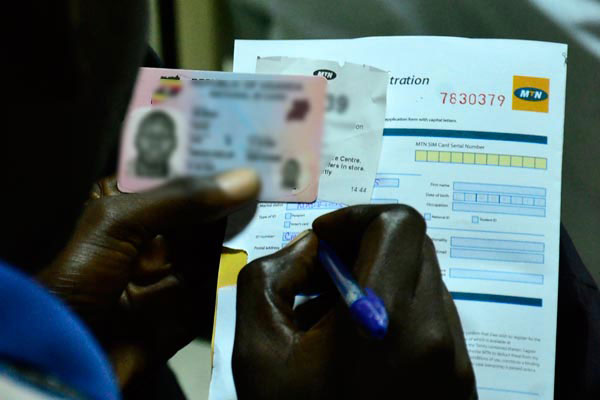By Catherine Ageno
The government of Uganda is advised to consider tackling the digital divide and increase internet penetration as the first step towards ensuring security rather than making SIM card acquisition burdensome.
This comes days after the communications regulator set tough guidelines for replacement and acquisition of SIM cards following a wave of criminal activities over the past few months that have been linked to the lax controls in the telecom sector.
However, Mr. Federico Plantera, an Estonian Showroom Media Specialist tells KFM that government should instead make fast internet accessible to all, establish data banks and ensure that all its departments and agencies can read into each other.
The new requirements include production of a valid police report, presentation of a letter from the National Identification Registration Authority (NIRA) validating that a SIM card holder’s national ID card is authentic, re-registration of the applicant for a SIM card by the telecommunications operator using biometrics and a passport photograph.
Other guidelines are issuance of fresh SIM card registration form and ensuring that the SIM card holder shall be using it card in a genuine type approved device.
Speaking to KFM at his office in Tallinn, Estonia recently, Mr. Plantera said to make the “digital-society” work for countries like Uganda, there is need for addressing issues of accessibility of internet. “You need to give people not only the possibility to have access to your telecom infrastructure, but also giving them access points and to increase penetration throughout the country”, said Mr Plantera.
He explained that to make this work, each citizen shall have the National Identification Number as their unique identifier through which they can access services and also easily be traced in case of crime.
This, he says works on the “once only” principle, requiring an authorized government official to only enter a citizen’s National Identification Number (NIN) once and be able to access all their personal data by a simple clique of the mouse from any part of the country. Data is collected only once by an institution, eliminating duplication of data and bureaucracy.
Mr. Plantera adds that there must also be change in attitude and culture in public administration. “People in the public administration and society are used to doing things the same way. Someone goes to a government office to talk to this guy and wait for hours to access a certain document or present their personal data. This must change to help save time”, he says.
In Estonia’s case, atleast 2% of state GDP is saved due to collective use of digital signatures and upto 800 hours of working time is saved annually.
He says Estonia’s success story as an e-state where upto 99 percent of the services involving public administration are online, should be shone as a light to other countries to ease processes in public service delivery because these things that have worked for Estonia for 1.3m people can also work for 500m people.
Another area where the country has registered great success is the e-police system which involves two main tool: a mobile workstation installed in each patrol car, and a positioning system that shows headquarters every officer’s location and status.
The Government of Uganda through the Ministry of ICT is currently implementing the National Data Transmission Backbone Infrastructure and e-Government Infrastructure (NBI/EGI) Project with the overall objective of providing connectivity to Government Ministries and Departments in the country.
The project was divided into three phases which included the laying of Optical Fiber Cable across the country to all major towns, with transmission stations in strategic towns.
To date some of the Uganda Government services that are online are the Uganda Investment Authority One Stop Center, Electoral Commission’ voters register, Ministry of Internal Affairs’ E-Visa, E-tax, E-Single Window as well as the Inspectorate of Government’s IGG Wealth Declaration.








